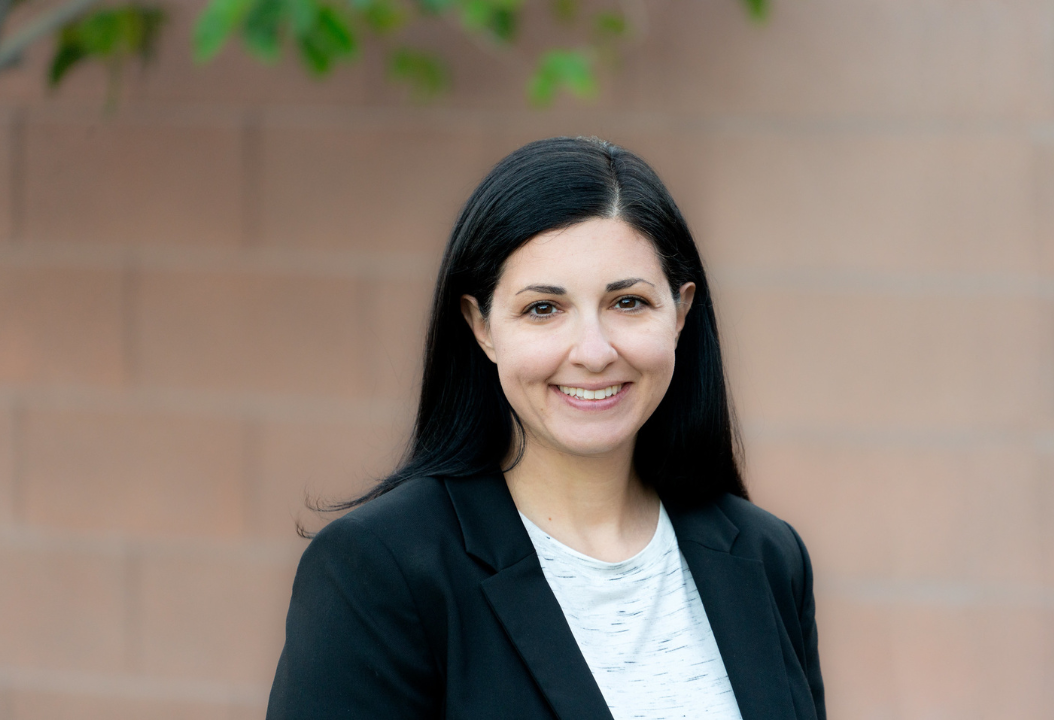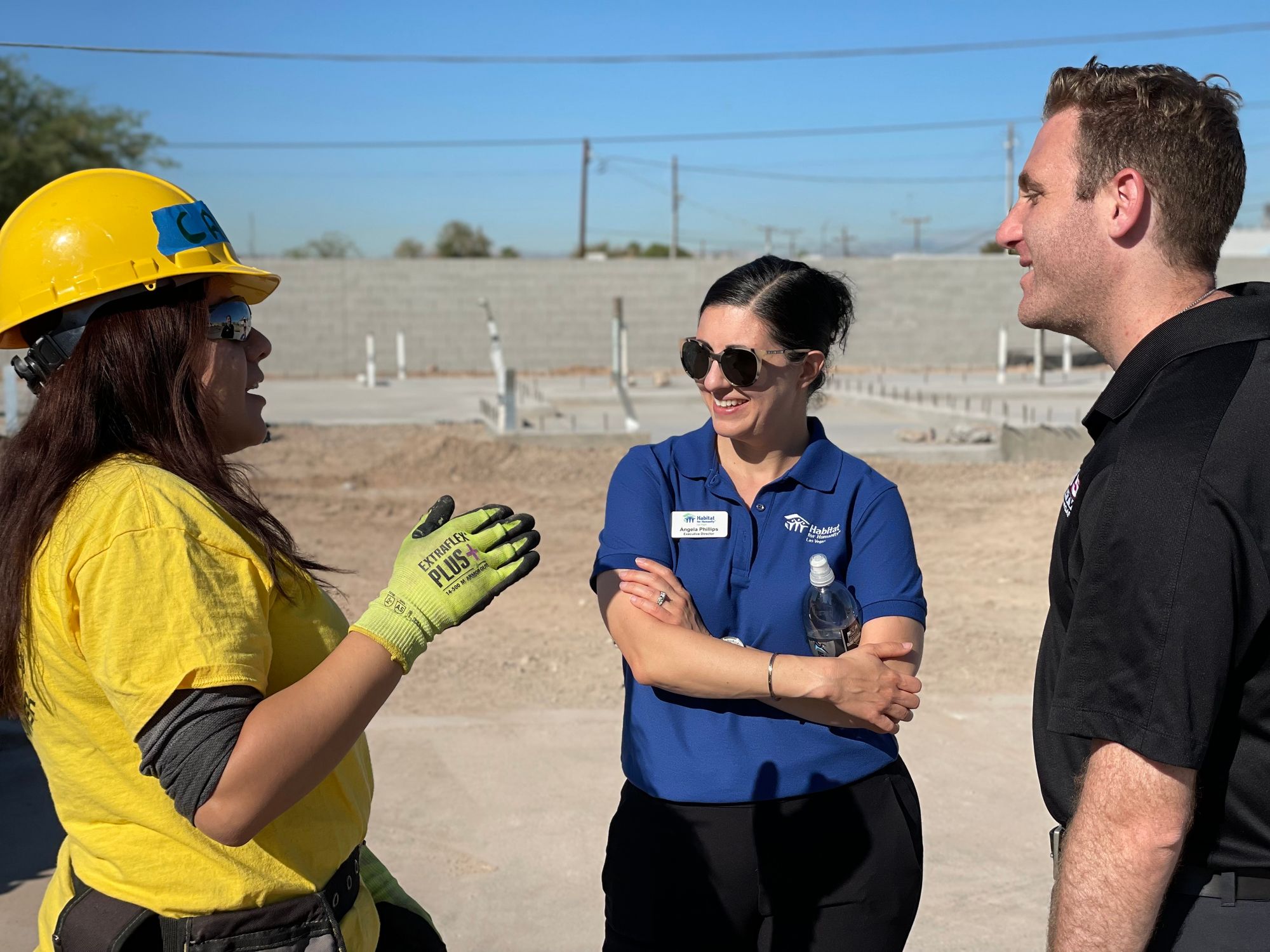Q&A: Angela Phillips, Executive Director for Habitat for Humanity Las Vegas, on Creating Affordable Homeownership

Subscribe to our email newsletter and follow us on social media.
Angela Phillips has over 23 years of experience in the non-profit and government sectors focused on developing and overseeing social service programming, providing financial oversight, and administering private and government grant funding. She was recently appointed to Executive Director for Habitat for Humanity Las Vegas in January 2022 but has served the organization in various roles since 2018.
Habitat for Humanity Las Vegas builds single-family homes throughout Clark County for working families earning less than 80% of Area Median Income. The home is sold at no profit through a zero-interest mortgage. Families volunteer their labor to help build Habitat homes, including the one they will eventually purchase.
Angela has extensive experience serving on committees and workgroups dedicated to creating systemwide change related to foster care, aging out foster youth, homelessness, family preservation services, and now in affordable housing. She graduated from the University of Nevada, Las Vegas with a bachelor’s degree in Criminal Justice and a master’s degree in Public Administration.
1) What drew you to Habitat for Humanity Las Vegas and how did you get involved in the nonprofit industry?
I have worked at Habitat for Humanity Las Vegas for almost five years in various capacities. Being a long-time resident of Las Vegas, I am very passionate about helping people in our community in all areas of their life. Throughout my career, I have worked in all areas of non-profit social services from foster care, workforce development, homelessness, food insecurity, basic needs assistance and have had the honor to witness many families overcome the challenges they faced. At Habitat Las Vegas, I get the opportunity to help people achieve their dreams of homeownership and provide them true stability and security for them and many generations to come.
I began working in the non-profit industry at eighteen years old and have always loved working alongside people who have a passion for doing more than what’s expected and brainstorming ways to create change. The work of a nonprofit is never done, so we need to continually pivot, innovate, and collaborate to make the world better than it was yesterday. This is what motivates me. This work has challenged me in ways that I never thought possible, but as a result I have continued to grow both professionally and personally. The work and opportunity I get to do every day is a gift that I do not take for granted.

2) In your opinion, how can Southern Nevada, both the private and public sectors, increase the supply of affordable housing?
Community partnerships and collaboration are the key to increasing the affordable housing supply. We need to bring government, private and nonprofit sectors together and partner to bring the skill sets of each sector and collaborate to address the issue. We are grateful to all our partners from all sectors who have supported our vision and Habitat homeowners, yet we cannot work in silos. If we do not improve our work together, we slow the process towards a solution for affordable housing that has become a great crisis in our community. There are numerous successful examples of these types of collaborations working in other cities and it’s imperative that we evaluate these solutions to determine if they could work in our environment. Nevada currently has the greatest affordable housing shortage in the country, and we must act now. We cannot keep doing what we have been and expect a different result.
3) Can you please share a success story with us about one of the homeowners and how Habitat for Humanity changed his/her life?
In May 2022, we handed over the keys to a brand-new Habitat home to Payton family. Todd and Wanda Payton care for their 24-year-old son, Eric who was born with cerebral palsy – a group of disorders that affects a person’s ability to move and maintain balance and posture. In addition to being wheelchair bound, Eric also endures seizures, intellectual disabilities, and mental health conditions. Throughout Eric’s life, the family had to adapt to living in apartment complexes with limited accessibility for their son. When we met the Payton’s, they were living in an apartment that was not adequately equipped for them to care their son’s daily needs. In fact, Todd expressed the fear he had when he had to pick his son up out of his wheelchair and transfer him into the bathtub in their small bathroom praying each day that he wouldn’t drop him. It was extremely challenging for them at times. During the construction process, the Habitat construction team worked with the Payton’s to design their new home to meet the needs of their son with wider doorways, an accessible shower and even a sitting area where Eric could be near his parents while they prep the family’s meals. Their Habitat home has truly changed the quality of their family’s life.
4) How do you see the organization changing in two years, and how do you see yourself creating that change?
Over the next two years, my goal is to scale our current housing production and expand our other programming to serve more people and have a larger impact on our community. Here in Las Vegas our Habitat affiliate is not building to the scale of other Habitat affiliates of similar geographical service areas. Habitat Las Vegas currently only has the financial resources to build two new construction homes per year; however, there are 81 similarly sized cities with Habitat affiliates that are building on average 10 homes annually with the highest performers building 40-60 homes per year. I’d like to strengthen the position of Habitat Las Vegas as the leading advocate and voice in affordable homeownership for the families and communities we represent. I am confident with strategic partnerships in our community we can get to the level needed to truly make an impact.
Subscribe to our email newsletter and follow us on social media.
